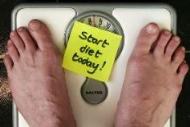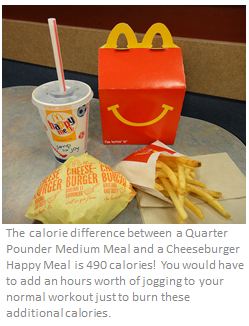 In my experience, about 80% of people quit their diet and fitness program within the first 3 months. Of the 20% percent left, only about 5% of them will continue their program after 6 cumulative months. How will you make yourself be a part of that 5%? Creating a SMART Health New Years Resolution in the way you would a with any business goal is one of the best tools you can give yourself if you truly want to achieve your resolution.
In my experience, about 80% of people quit their diet and fitness program within the first 3 months. Of the 20% percent left, only about 5% of them will continue their program after 6 cumulative months. How will you make yourself be a part of that 5%? Creating a SMART Health New Years Resolution in the way you would a with any business goal is one of the best tools you can give yourself if you truly want to achieve your resolution.
Specific
This means your goal needs to include the who, what, when, where, and how.
Example, Instead of "I will lose 15 pounds by June", it should be "I will lose 15 pounds by June by working out 5x per week through running out side and joining a yoga studio, as well as keeping my diet under 1500 calories 6 days a week."
Measurable
Establish the milestones that will measure your progress along the way and will show you when your goal has been fully achieved. Without these, you'll certainly lose motivation before achieving your ultimate goal.
Example, To lose 15 pounds by June, I will weigh myself once a month and will have these milestones: 5 pounds lost by February, 8 cumulative pounds lost by March, 10 cumulative pounds lost by April, 12 cumulative pounds lost by May, 15 cumulative pounds lost by June!
Attainable
Understanding the attitudes, abilities, tools, and financial capacity to actually achieve your goal is integral to your success.
Example, Losing 15 pounds in 3 months is unattainable due to my work schedule and amount of diet discipline that is maintainable for me. I'll give myself 5 full months to lose the 15 pounds at a healthy and moderate pace that will make it easier to maintain long term.
Relevant
 Your goal must be tailored to your body and health. Remember, in order to lose just 1 pound a week, you need a caloric deficit of 500 calories per day for the entire week. For me, 500 calories could be the equivalent to adding over an hour of jogging at a moderate pace, not adding the medium soda and bag of Doritos you added to my sandwich at lunch, an hour and a half yoga hot yoga class, or choosing the guacamole over the spinach and artichoke dip while at a bar with friends. Next time you're at the supermarket, pick up a pound of meat. At pound is a lot of people! Remember that as you set your goals!
Your goal must be tailored to your body and health. Remember, in order to lose just 1 pound a week, you need a caloric deficit of 500 calories per day for the entire week. For me, 500 calories could be the equivalent to adding over an hour of jogging at a moderate pace, not adding the medium soda and bag of Doritos you added to my sandwich at lunch, an hour and a half yoga hot yoga class, or choosing the guacamole over the spinach and artichoke dip while at a bar with friends. Next time you're at the supermarket, pick up a pound of meat. At pound is a lot of people! Remember that as you set your goals!
Example, If you're obese, losing 15 pounds in 3 months could be realistic for you. On the other hand if you're just slightly overweight, achieving your daily caloric deficit will be much more difficult can more realistically be met in 5 months.
Timely
You must add urgency by adding time frame to your goal. Without this anchor you'll never feel the daily push to work towards your goal.
Example, "I'll lose 15 pounds this year" should be grounded with a more specific time frame like "I'll lose 15 pounds by June 1st."
Don't forget the most important part when developing your goal!
Your Contingency Plan
Consider this my addition to the general SMART acronym to make it SMARTY. So many times no one accepts upfront that they'll inevitably slip up and consider what they'll do when they do. These slips are what turn that original 100% and widdle them down to the 5%.
Examples, "If I go over my 1500 calories per day for 3 days in a week, I have to add a morning workout for 30 minutes to the next week." "If I'm too busy at work to get my workout in, I'll only have a salad and lots of water for dinner." "If I get sick, it's ok to simply rest and I'll get back on track when I'm feeling better."
Had you made a resolution before you read this post? If so, do you need to add or tweak it at all now that you've read this? Comment below! I'd love to hear your resolutions and how you plan to tackle your foreseeable challenges ahead to achieve it.
If you need could use some additional help developing your own personalized 2012 goals and plan, don't hesitate to reach out! Everyone (including myself!) can benefit from outside encouragement to stay on track 1, 3 or 6 months through your health resolutions.



